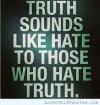| Online: | |
| Visits: | |
| Stories: |

| Story Views | |
| Now: | |
| Last Hour: | |
| Last 24 Hours: | |
| Total: | |
Differences Between Skeptics and Cynics
 “Jamie why are you so skeptical?”
“Jamie why are you so skeptical?”
“Why do you have such a negative view of the world?”
“You are so cynical.”
I hear comments and questions such as these on a regular basis. My answers to these questions:
It is not a bad thing to be skeptical.
I am not cynical (at least not most of the time).
What is a skeptic?
Some people believe that skepticism is the rejection of new ideas. Often people confuse “skeptic” with “cynic.” Skeptic is derived from the Greek skeptikos, which means, “inquiring” or “to look around.” The skeptic requires evidence before claims are accepted as fact (fact, not in layman terms, but fact as tentative). It is important to consider who’s making the claim, but no matter who it may be, evidence is required.
The person’s reputation, authority, or credentials do not make the claim correct. The evidence determines whether the claim is correct. Skepticism is a method used to question the validity of a particular claim. In its simplest form, skepticism requires evidence for a claim to be accepted as fact (valid evidence = scientific research data; valid evidence doesn’t include “they say,” “my instructor says,” “the gym staff says,” or “I have always heard”).
Obviously, science has not investigated every claim. Many claims are so outlandish and unjustifiable (according to already established scientific facts) they do not warrant scientific investigation. These are the type of claims that violate basic facts of biochemistry, cognitive science, endocrinology, dating methods, various medical sciences, and so on.
What is a cynic?
Cynics are distrustful of any advice or information that they do not agree with themselves. Cynics do not accept any claim that challenges their belief system. Recently in an interview I was asked the following:
Do you have any concerns about some people saying this book [the book being discussed was, Knowledge and Nonsense: the science of nutrition and exercise] promotes a cynical approach to the fitness industry?
In response, I said:
No. The only people that will make this claim are people that are not willing to look at truth and people that promote quack science. Fitness skepticism (this includes the health, nutrition, and supplement industries) is an approach to claims that investigates reason and evidence behind any and all ideas. Skeptics do not go into an investigation closed to the possibility that a claim might be true. When I say “skeptical,” I mean that I need to see valid evidence before believing a claim. “Cynical” on the other hand means taking a negative view and not willing to accept evidence for the claim. I think skepticism is a good thing and should be promoted in all fields.
Skepticism and science
Skepticism is a key characteristic of scientific thinking. Basically, science is a specific way of analyzing information with the goal of testing claims. Science (and the scientific method) is the best means we have for tracking how the measurable universe works.
Giving a precise definition of the scientific method is difficult as there is little consensus in the scientific community as to what that definition is. A. Aragon (Girth Control 2007) defines the scientific method as: “systematic process for acquiring new knowledge that uses the basic principle of deductive (and to a lesser extent inductive) reasoning. It’s considered the most rigorous way to elucidate cause and effect, as well as discover and analyze less direct relationships between agents and their associated phenomena.” Deductive reasoning provides comprehensive grounds for its conclusion. Deductive reasoning makes specific predictions and is either valid or invalid.
As I mentioned above, if you asked a panel of scientists to define the scientific method you would receive a myriad of answers, but I think most would agree on the basic concepts, as pointed out by Michael Shermer.
The following is an excerpt from Why People Believe Weird Things (Shermer, 1997). “Through the scientific method, we may form the following generalizations:
Hypothesis: A testable statement accounting for a set of observations.
Theory: A well-supported and well-tested hypothesis or set of hypotheses.
Fact: A conclusion confirmed to such an extent that it would be reasonable to offer provisional agreement.”
When using the scientific method, one of the primary goals is objectivity. Proper use of the scientific method leads us to epistemic rationality (holding beliefs that are commensurate with available evidence). Relying on science also helps us avoid dogmatism (adherence to doctrine over rational and enlightened inquiry, or basing conclusion on authority rather than evidence).
Being skeptical, not cynical, helps us in forming beliefs that are in agreement with evidence.
Source http://psychcentral.com/blog/archives/2011/02/08/im-a-skeptic-not-a-cynic/






